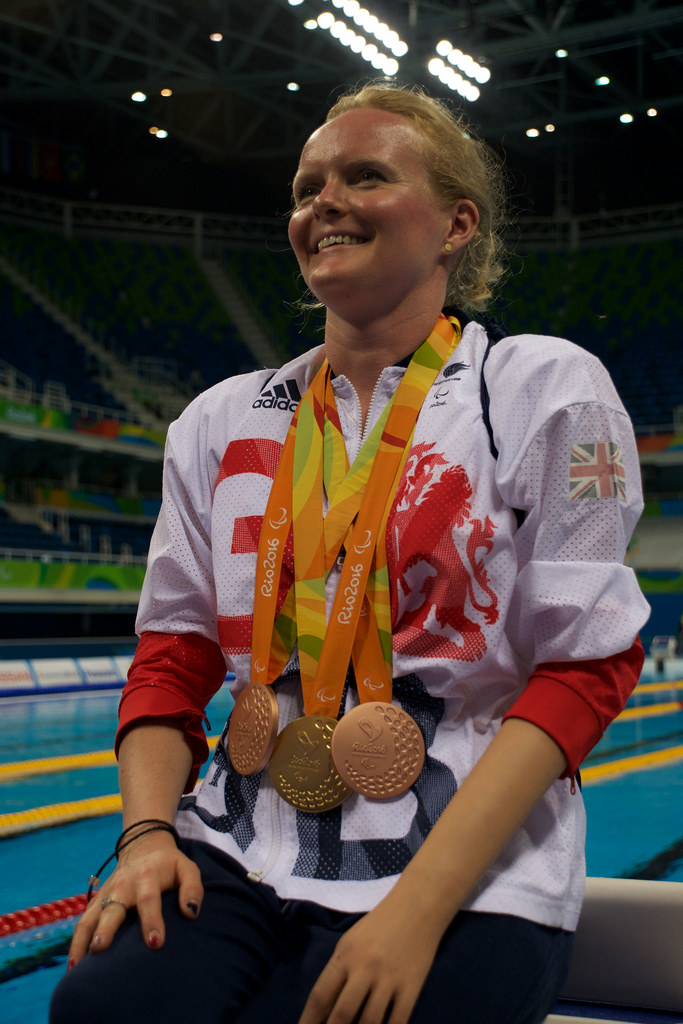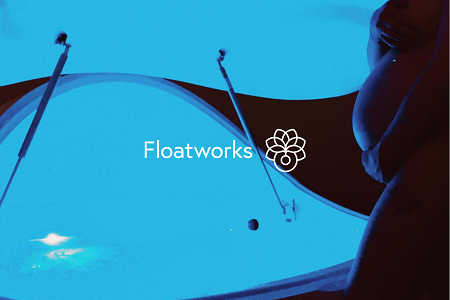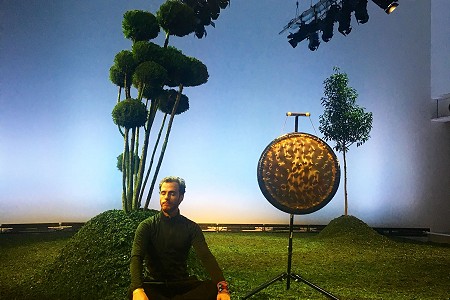Susie Rodgers: how floating helped me win gold
The GB Paralympic champion on how Floatworks helped pave the way for victory in Rio…

“You’re going to need a perfect dive, a perfect swim and a perfect finish to win.”
Those were the daunting words Great Britain’s Paralympic swimmer Susie Rodgers heard from her coach shortly before lining up for the S7 final at the Rio Games this summer.
She had been here before. Four years earlier, the 33-year-old from Stockton-on-Tees, who was born without a fully formed left arm and left leg, lined up for the same race at London 2012, knowing she was capable of clinching gold. Instead she finished fourth, letting that golden opportunity slip through her grasp.
But this time in Brazil, things were different.
“Before London I didn’t do enough to prepare for the mental side of competition,” says Rodgers, speaking in October, the day after visiting Buckingham Palace along with the fellow Olympians and Paralympians celebrating GB’s greatest ever overseas Games.
“I was in a bit of a state with anxiety and stress. The race was awful. I just lost the plot on the blocks. I almost knew I was going to lose before I started.”
In March this year, on the eve of the GB trials for Rio, the doubts began to creep up on Rodgers again. But this time, after being told about the anxiety-relieving benefits of floating by a friend from Amsterdam, she found a tonic to the pressures of expectation with Floatworks in London.
“I noticed the benefits [of floating] immediately,” she says. “I didn’t have any reservations before my first float. I was quite open minded and because I was so stressed anyway, the idea of switching off for an hour and not having to think about swimming or hitting times was a nice idea.
“I treated it almost like I was going to a spa. When I got in the tank I felt free. I felt it tapped into something deeper. I got in all wired and stressed and got out feeling relaxed and happy.”
The benefits continued out of the pod too. “Before and during competitions I don’t sleep well but that first night I slept quite well and that hour in the tank was so relaxing it’s almost like a nice sleep. It almost tops your sleep up. I liken it to putting a phone on charge – you’re charging yourself up.”
With her stomach no longer doing butterflies, Rodgers sailed through the trials and then began plotting her plan of attack for Rio, building in a visit to Floatworks every fortnight.
“It became part of my training toolkit,” she says, in addition to seeing a counsellor, practising yoga and mindfulness and following guided meditation. “Knowing I have something to turn to when I need it gives me the comfort to relax and enjoy competing more.”
Rodgers’ GB coaches quickly noticed the impact it was having on her general demeanour. “I got comments from my coaches and team saying they were surprised by how relaxed and calm I was,” she says. “It helped as a coping mechanism to be in the moment a bit more and not overthink things.”
Some sessions in the i-sopod tanks provided her with the chance to focus on Rio, while others gave her an escape from the fast-approaching Games altogether.
“Every float is different. I sometimes went in there and thought about races and visualised performing and thought through strategies but it also gives you a chance to switch off and go into your head without any other stimulus. I find that refreshing.”
Fully charged, refreshed and focused on executing the perfect race, Rodgers lined up for the 50m butterfly on September 12 in Rio’s Estádio Olímpico de Esportes Aquáticos.
“I was looking forward to it. In London it was the opposite. This time I felt I wanted to throw everything at it. There was nothing to lose. I went into it without any fear of what the outcome would be. I thought I was just going to get in the water and swim the perfect race.”
After her coach reinforced the need for perfection in the pool, Rodgers felt a sea of calm wash over her. “I don’t think he meant to scare me but I didn’t feel worried. I actually thought, ‘This is good. I’m in a good place in my mind’. When I went into the call up room before the race I could hear the crowd – a loud, brilliant crowd – and I was nervous but I was excited. I thought, ‘I’m a performer, this is my stage’.”
With the crowd hushed, Rodgers poised on the podium, thoughts of London surely flashing through her mind, she propelled herself into the water. “I had a good dive, had a good breakout, knew I got into the rhythm of my race quickly,” she recalls, adrenaline surely rising with the memories still so fresh.
“In the last 25m I was neck and neck at the front. That was when I channelled all my energy. I thought this is it, I’m doing this and I’m going to go out on a high and put everything into it. And fortunately I reached in with my arm at the right position for the finish.”
Cue, not joy or relief; but shock.
“When I got out of the 50m fly in London and I was in tears. I was inconsolable. When I got out in Rio I was in pure shock. I’ve never felt so numb. I didn’t register it.”
The image of Rodgers – eyes wide, hand covering her open, gobsmacked mouth – instantly became one of the iconic moments of the whole summer.
“It’s been projected everywhere,” she says. “It was not expected. Even my interview afterwards was hilarious because I’ve not got a clue what’s happened. Even when I was on the podium singing the national anthem it was blurry, I don’t know how I didn’t pass out, it just felt like it wasn’t real.
“Even the night after when I got back to the village I was just sitting in my room staring at the gold medal thinking they’re going to take it off me, surely it’s a mistake.”
A month later, reflecting on her five Paralympic medals (she also won 50m freestyle bronze on day two in Rio to go with her three bronzes in London), Rodgers plans on giving herself time to enjoy her achievements before returning to her somewhat more sedate role as project officer for the British Council – and the sanctuary of floatation.
“I’m not sure if I’ve got another Games in me,” she says, on the topic of retirement. “Maybe I’ll have a moment of clarity in my next float and know exactly what I’m going to do next. Until then, I owe it to myself to enjoy the time to relax and recover, and that starts with a trip to the floatation tank.”
MEDAL ALERT: #GOLD and EUROPEAN RECORD for @Susie_Rodgers in the #Rio2016 Women’s S7 50m Butterfly Final! #ROAR pic.twitter.com/UNea0C4ON6
— British Swimming (@britishswimming) 12 September 2016
Are you a budding Olympic superstar? Or even just an avid sports-lover? Check out our latest floating offers to find out firsthand how floating will boost performance…







